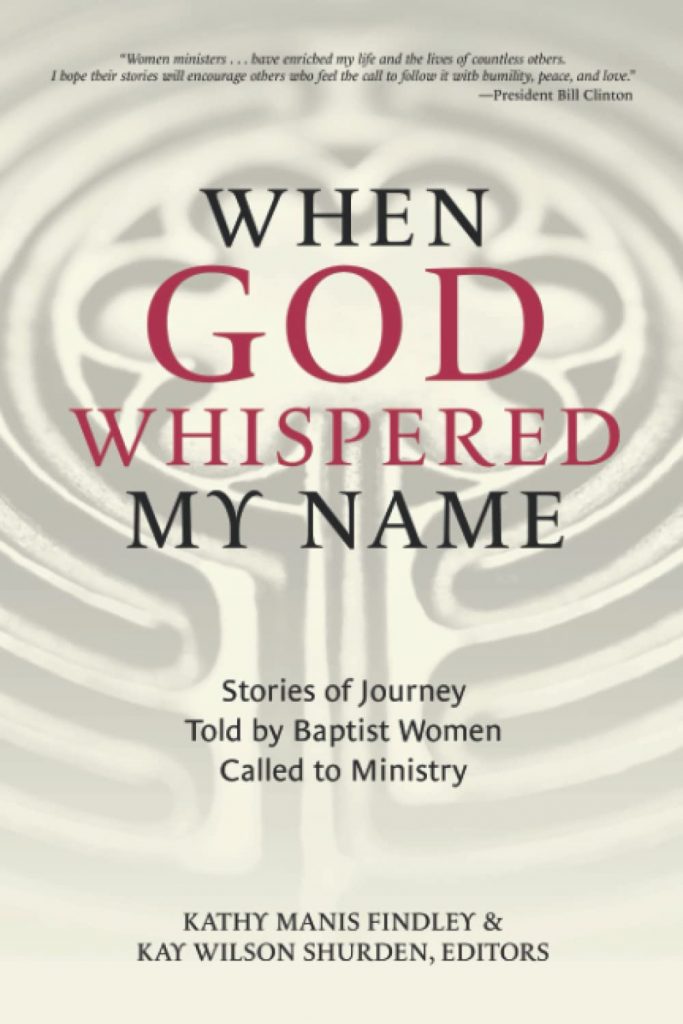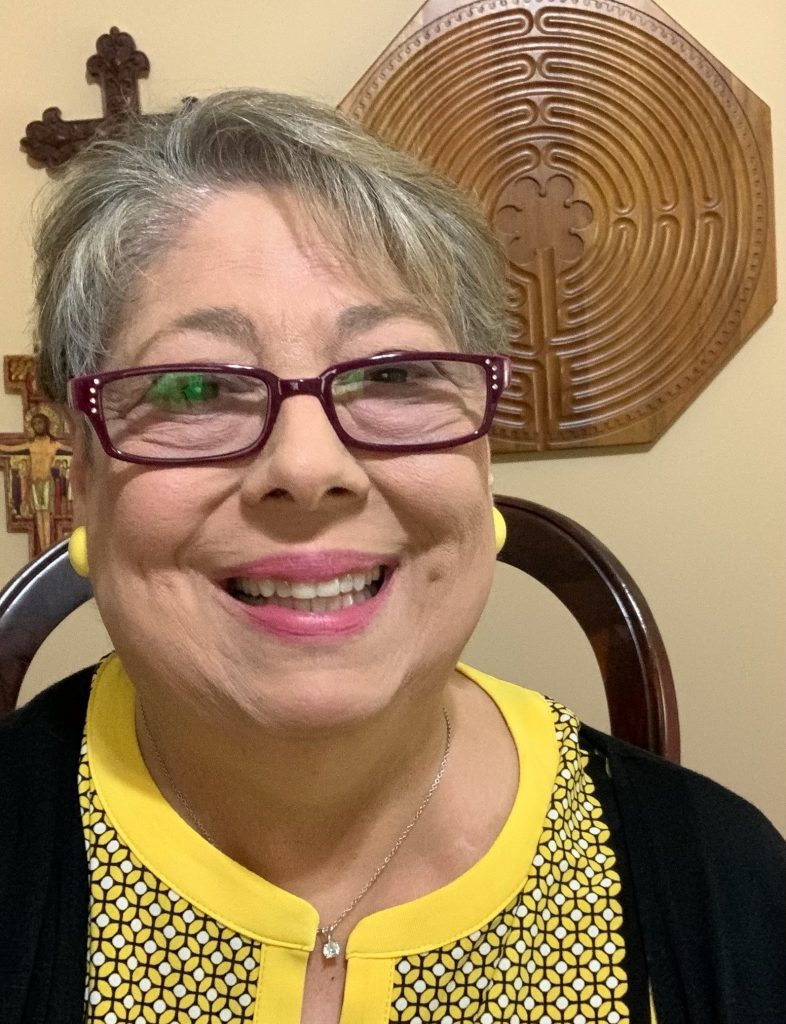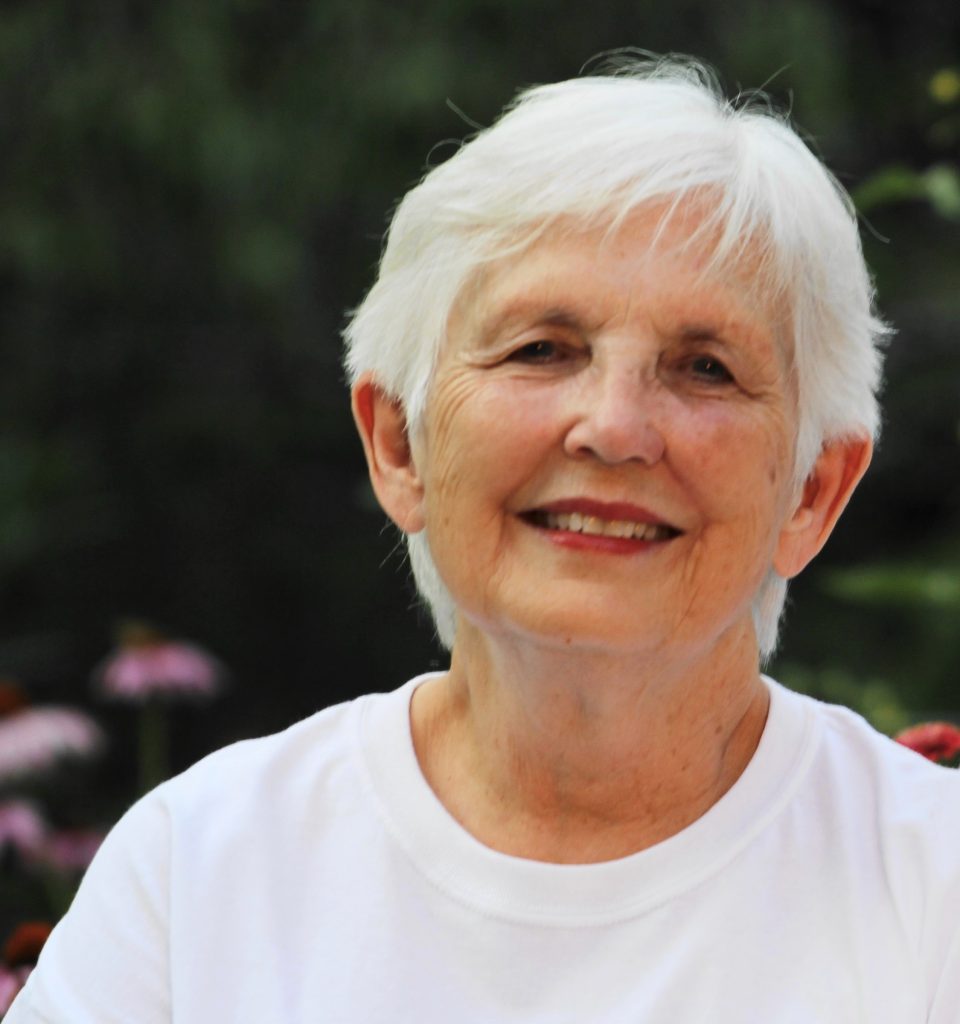When God Whispered My Name
When God Whispered My Name has just been published, and I’m honored that my story is included. In this book, co-edited by Rev. Kathy Manis Findley and Dr. Kay Wilson Shurden, nineteen Baptist women ministers tell our stories of life and sacred calling, describing hostile environments of rejection, churches that dismissed our call, and some people and places that offered us the grace of acceptance and nurture.
In the Introduction Rev. Findley writes: “Welcome to these pages—sad and soulful, deeply serious and sometimes whimsical. As you read, be prepared for the serendipities. Right out of a sad moment, you’ll find humor, fun, and even a little laughter. I invite you to fall into the stores, to enter into the lives of these women, and to ‘listen’ to the expressions of their souls. Unlike their male counterparts in ministry, their journey will not follow a straight path. Instead the waiting will one day lead them to follow a more sacred path, a path that is circuitous, fluid, and free. Likely the women will follow a labyrinthine path—a path that is circular and never straight—a path where one never gets lost or follows the wrong road because the destination is the center. Some of the women who share their stories of journey in this book traveled a hard way of rejection while others enjoyed a clearer, friendlier path. They are a diverse group—Black, White, Latinx, Japanese; LGBTQIA; young, old, and in between. They align themselves with the Cooperative Baptist Fellowship, the Alliance of Baptists, the American Baptist Churches USA, Church Without Walls Global Reach Ministries, Progressive National Baptist Convention, National Baptist Convention USA, and the Covenant Baptist United Church of Christ.”
Here are excerpts from a few of the stories, beginning with my own.
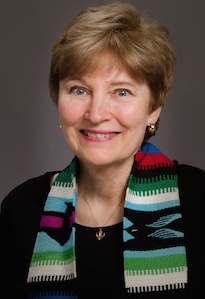
From My Story: “Awakening to My Call”
Both my parents were preachers, but only one was ordained. I grew up in a small town in Louisiana in the 1950s and 60s. It was a time in the South when water fountains were labeled “colored” and “white,” and LGBTQIA+ people didn’t exist. My father almost lost his job as pastor of First Baptist Church, Minden, Louisiana, because of his stand for integration during the Civil Rights movement, and he did lose his position on the board of Midwestern Baptist Theological Seminary because of his stand for the academic freedom of a professor who wrote a book on a symbolic interpretation of Genesis. My mother always served as a minister, but she was never ordained or paid. Her dynamic speaking ability and exceptional leadership skills made her every bit as qualified as my father to pastor a church. She was always taking care of the underdog, never realizing that she was one. Growing up, I never saw a woman in the pulpit, except a missionary to Nigeria. And what she did was called “speak,” not “preach.”
When I was teaching English at Dallas Baptist University, I read All We’re Meant to Be: A Biblical Approach to Women’s Liberation, by Letha Dawson Scanzoni and Nancy A. Hardesty. This book changed my life. Although I had claimed my professional vocation, I had never questioned biblical interpretations that prescribed the subordination of women at home and at church. As I read All We’re Meant to Be, I found more than enough biblical support for gender equality. The copious scriptural evidence and clear theological reasoning in All We’re Meant to Be transformed my life with new revelations of the rightness of gender equality.
Several years later, I witnessed these revelations becoming flesh. When I was thirty-one, Dr. Raynal Barber, my friend and colleague in the English department at Dallas Baptist University, and I went to a worship service at Cliff Temple Baptist Church in Dallas, Texas. Martha Gilmore was being ordained, one of the first women in the South to be ordained by a Baptist church. For the first time in my life, I saw a woman kneeling before the church as a long line of people—women as well as men—passed by to lay hands of blessing upon her. Before this night I had seen only men ordaining only men. The message I internalized was that this was a male ritual, from which women were forever excluded. Now something new was happening. A woman was receiving the sacred blessing. From somewhere deep within my soul I felt the rightness of it. After the service Raynal said, “Jann, one day we’ll be going to your ordination. I see the way you relate to students, as a minister as well as a teacher.” I gave her a shocked look and replied, “Oh no! I’ll research, write, persuade, give chapter and verse to support the ordination of women. But I wouldn’t want all the criticism and struggle Martha’s gone through.” But the prophetic word could not be unspoken. Holy Wisdom continued to call my name.
Eight years later Raynal stood at my ordination service at Seventh and James Baptist Church in Waco, Texas, to read these words of the prophet Habakkuk: “Write the vision; make it plain on tablets, so that a runner may read it. For there is still a vision for the appointed time . . . . If it seems to tarry, wait for it; it will surely come” (2:2-3). Rev. Martha Gilmore preached the ordination sermon, proclaiming that I was “the vision made flesh, the vision that God indeed calls women to ordained ministry.” Martha declared that I had also become “a statement, a promise for many women and men and a hope for many women who may be frightened to hear God’s call.” It helped to hear her bless me as a “statement,” because that word had been used negatively in reference to me and other women who had chosen nontraditional paths. People had tried to dismiss me by saying, “Oh, you’re just trying to make a statement.” I realized that we were in a time in history when statements about the worth of women needed to be made. And these statements need to be made today as much as ever.
That night of my ordination I knelt at the front of the sanctuary as hundreds of people from many faith traditions came by with words and hands of blessing. My father died fifteen years earlier, but I felt a strong sense of his presence and blessing. My mother, sister Anne, spouse David, and sons Chad and Brett were there to affirm and bless me. Baptist ordinations traditionally include only ordained Baptist pastors and deacons, usually all men, in this ritual of laying on hands. David, an ordained Baptist deacon, was in this group. But I also wanted this ritual to symbolize the inclusiveness I strongly believed in. I definitely wanted my mother, sister, and children, ministers though not ordained, to be included. And I wanted to include members from St. John’s United Methodist Church, where I was serving as associate pastor. When no Baptist church would call me after I graduated from Southwestern Baptist Theological Seminary and the seminary’s placement office would not help, the gracious people of St. John’s had welcomed and affirmed me as a minister with a special appointment to a Methodist church, without asking me to give up my Baptist tradition. I invited people of all genders, races, ages, and faith traditions—all who wished to come forward to lay on hands of blessing. Powerful feelings washed over my spirit like waves along the seashore. Tears of joy and gratitude mixed with tears of sadness over the hundreds of years women had been denied this sacred blessing. I wept for my sisters in all faiths who were still denied this blessing. At the same time waves of hope washed my soul, filling me with courage to live the vision.
In the years since, I’ve discovered that it’s easier to see the vision than to live it. Time and time again I’ve faced the challenge of breaking free from cultural traditions that limit women and all people. Living into my call and becoming all I’m created to be in the divine image is a continual challenge. Religious and cultural traditions are constantly trying to stifle our gifts and our voices, to put us back into boxes from which we’ve broken free. External and internal forces are formidable.
The more I tried to live my call to pastoral ministry and my call to write in support of women in ministry, the more I realized that the resistance to ordination of women is just part of a larger patriarchal culture that gives greatest value to white, heterosexual, able-bodied, financially privileged males. People other than these males are considered “other” and marginalized and oppressed. I was realizing that the ordination issue is just the tip of the patriarchal iceberg. At the foundation of our patriarchal culture is an image of a male God, sanctioning patterns of dominance and submission. More and more I was understanding that the strongest support imaginable for the dominance of men is the worship of an exclusively masculine Supreme Being. So my call expanded to writing, preaching, and teaching on the inclusion of female names and images of Deity.
I soon realized the need to go beyond biblical and theological explanation to ritual experience, to engage the imagination as well as the intellect in order to bring change. I remembered the prominent place given to hymn singing in the Baptist church where I grew up and how much I loved singing hymns. So I began writing inclusive lyrics to familiar hymn tunes with the hope that they would be incorporated into worship services and contribute to an expansive theology and an ethic of equality and justice.
One of my first hymns is “Celebrate a New Day Dawning” to the tune of “Hymn to Joy”:
Celebrate a new day dawning, sunrise of a golden morn;
Christ-Sophia dwells among us, glorious visions now are born.
Equal partners round the table, we make dreams reality;
calling out our gifts, we nurture hope beyond all we can see.
Christ-Sophia lights the pathway to a world of harmony;
Sister-Brother Love surrounds us, nourishing our synergy.
Earth joins in our rich communion, grateful for our healing care;
leaping deer and soaring eagles, all Earth’s fullness now can share.
Sing a song of jubilation, dance with joyous revelry;
clapping trees and laughing rivers join our call to liberty.
Free at last to blossom fully, flowering forth in beauty bright,
we become a new creation, bursting open into light.
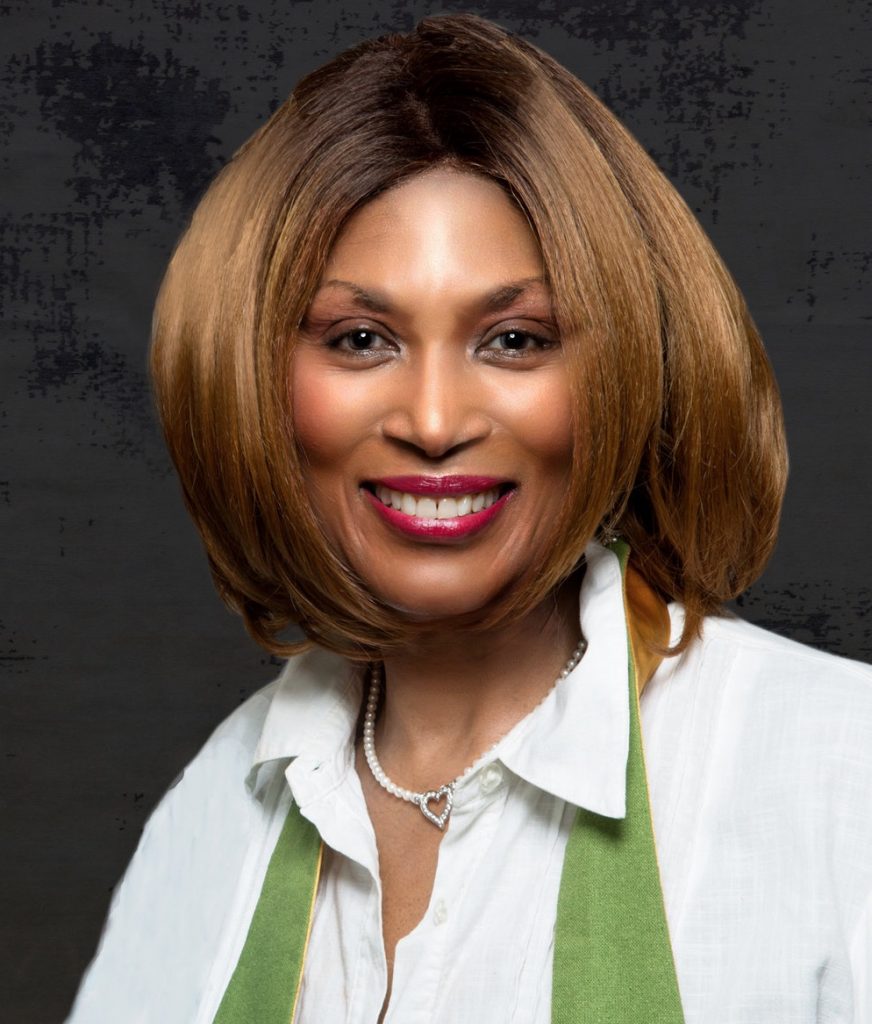
From the story of Rev. Sheila D. Sholes-Ross, pastor of First Baptist Church, Pittsfield, Massachusetts, and co-chair of Equity for Women in the Church: “Empowered by My Promised Inheritance”
I cannot. I will not. I have never heard of such. I will not accept having a woman “in charge” of my spiritual development. These are just some of the many comments I heard from family members and friends when I informed them that I was being called into ministry. At the age of forty-five, I heard God whisper my name in order to receive my rightful inheritance and placement as a woman of God called into ministry.
But this call, which I either did not recognize or ignored, had echoes back to when I was as a seventeen-year old African American girl in New Orleans, Louisiana. I had never seen a woman pastor, let alone a woman of color in the male- dominated Baptist church pulpit. The age reference remains clear in my memory bank since I was being pressured to select a major, an ambition, for my 1974 senior yearbook picture since I would soon be heading off to college after graduation. In my home, it was often spoken that I had to go to college and have a profession which would enable me to take care of myself so that I would not have to rely on a man through that of marriage.
During those times, girls going off to college were expected to become nurses and teachers; at least my family expected me to select one of these choices. However, I could not write in the yearbook space, calling for a proposed major and ambition, one of these wonderful professions. So, I left it blank until the school principal called me in his office to see why I had committed this grossly inferior act. I could not tell him that I left it blank because I knew God was calling me to “something” but I could not, for the life of me, comprehend what that “something” was.
I declared a double major of music therapy and voice. I did not believe I was called to be a singer and therapist either, but pressure from family members propelled this declaration because of my giftedness and talent in music.
Upon university graduation, I did not seek a career in music because I did not have a passion to do this aspect of work. It was becoming more and more evident to me that God was calling me to something, but it was not clear as to “what” the something was. I just knew that whatever it was, it had to be either special or difficult because God did not want to present me with the information in a clear manner that I could understand. Maybe, it was because I would not have fully comprehended or accepted God’s call. Like many, I would have said, “Why Me? God, you know there are not women preachers around here.”
As a nineteen-year-old college sophomore, I was chosen as the youth speaker for the annual evening Women’s Day Celebration in my New Orleans home church, which was 100 percent African American. I was so proud, delighted, and terrified to accept the invitation. When the time came for me to offer the message, instead of going down to the floor podium where women speakers usually spoke, I entered the pulpit. Dead silence. Usually, when a young person would get up to speak, especially a female speaker who might be a little timid, the church would break out with hand-clapping and many amens, along with “Take your time baby, God will help you!”
Entering the pulpit was not a conscious decision; I was by no means trying to rock the boat. I asked myself afterwards, “Why did you do this?” Surprisingly, I had felt completely comfortable. Following the message, everyone told me how great it was and lavished me with praise—even the senior pastor who was sitting near the pulpit during the worship. But I do remember seeing the look of shock upon his face when I entered the pulpit, which possibly explains why I was never again asked to serve as a Women’s Day youth speaker.
Years passed. I got married and still was challenged with this proverbial question to God. I struggled to the point that I informed my husband that I believed God was calling him to ministry, and I had no desire to be married to a clergy person. I loved dancing, great wine, and bourbon. In the African American Baptist church tradition, good church people claimed they did not dance or drink, but many did, even the ministers. This hypocrisy among many who had accepted the call from God may have been one of the reasons I had a problem with the vocation. After looking at me for what seemed like a very long time, my husband responded, “God is not calling me into ministry. I do not believe God needs a third party to advise me of a ministry call.” He smiled and advised me to continue asking God what was the Holy One wanting of me.” Smart husband. “Okay, God, you now have more of my attention. It is not my husband you are calling. What do you want of me?”
After working in several wonderful positions in my hometown of New Orleans, I was recruited to the University of North Carolina at Chapel Hill. I successfully spent a few years as a school-based health developer of statewide programs, all the while becoming more and more restless. I became increasingly weary of presenting the same unanswered question to God, until finally I understood the Holy One’s whisper. “You feed my sheep.” Still, I ignored the whisper.
During my tenure in North Carolina, I did see women in ministry. I did see women of color in ministry, but for whatever reason, I continued to avoid accepting God’s call upon my life, that is until a strange occurrence took place.
While showering one night in 2004, a light bulb tightly secured in its fixture setting suddenly fell, barely missing my head. It should have broken once it hit the shower floor, but it did not. It remained intact, and I escaped injury. I was terribly shaken because, as far as I could tell, nothing could explain its sudden release and miraculous indestructibility. My husband was out of town on business, but upon his return he found me curled up in a fetal position in bed. I told him, “God is not calling you; God is calling me.” My husband’s response, “I told you God did not need you to tell me about any ministry call upon my life.” I was then ready to walk into my “promised inheritance” call from God.
I am such a blessed woman because my husband and his immediate family members have been supportive throughout my ministry journey call and in my present position as Senior Pastor at First Baptist Church of Pittsfield, Massachusetts. I cannot say the same with my immediate family members and friends. There are former male friends currently serving as pastors in renowned churches, and they do not recognize me as a pastor. These are men I grew up with in the church where I was bold enough to enter the pulpit at the age of nineteen to offer my Women’s Day message.
As I began to walk towards full acceptance of this call upon me, I entered seminary in the fall of 2005. This was when I was introduced to the Hebrew Old Testament texts of Numbers 27:1-11 and Joshua 17:3-4 (NRSV) via my female Zimbabwean Old Testament professor. I immediately fell in love with these texts, as they spoke well to my journey as a woman in ministry—a woman facing obstacles, but determined to actively participate in her inheritance call.
The biblical story documents that Zelophehad was from the tribe of Manasseh. He had five daughters but no sons and therefore no male heirs to receive property inheritance upon his death. Zelophehad died. The text tells little of Zelophehad himself, but speaks about his incredible five daughters named Mahlah, Noah, Hoglah, Milcah, and Tirzah. They stood up for themselves to guarantee their share of a property inheritance.
God had spoken to Moses, and I choose to view God’s response as the Holy One defending the rights of women. What is so intriguing regarding this story is that even in antiquity’s patriarchal setting, Moses listened and obeyed God’s command. Moses may not have fully understood or agreed with God, but he obeyed God. This text should be a starting point with many fundamentalist and evangelical male clergy. There are also twenty-first-century women who persist in maintaining the traditional mindset that only males can be pastors. They would benefit from the biblical understanding that Moses, a man, obeyed God regarding the rights of Zelophehad’s daughters. Many may still not accept, and various interpretations of the text will differ, but I choose the interpretation of the text focusing on women’s rights.
As for my own “whisper,” the sound of it remains in my heart, continually nudging my spirit to persevere. The “whisper” unshackles my soul, empowering me by my promised inheritance. And from a place of holy freedom, I am liberated to stand boldly in the light of my inheritance and live into my calling.
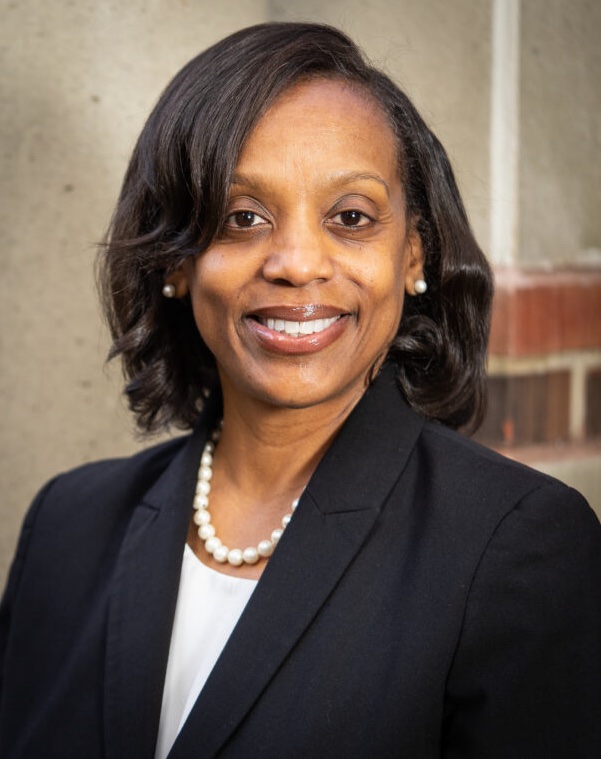
From the story of Rev. Dr. C. Lynn Brinkley, associate director of Baptist Women in Ministry: “Bloom Where You Are Planted”
As I reflect on my past experience as a police officer in the aftermath of the deaths of Ahmaud Arbery, Breonna Taylor, George Floyd, and so many others, I firmly believe that Black Lives Matter! As a former police officer who has had my life in danger on more than one occasion, I believe that blue lives matter. And yes, I believe your life matters! Why is it so difficult for others to hear with empathy the cries of Black, Indigenous, people of color (BIPOC) when we say “The struggle is real”? Being followed in department stores, being pulled over by the police without just cause, and fearing for your life in certain settings is real! And no uniform or badge shielded me from that reality.
After my brief career in law enforcement, I went into the nonprofit sector trying to find my vocation, my voice, and my passion. I served as a foster care supervisor and a lead case manager for a juvenile program, but nothing seemed to fit who God was calling me to become. I began to wrestle with my purpose and considered joining the Air Force, but God called me beside a dumpster.
My call to ministry happened right outside of Taylor Hall on the campus of Campbell University. It was August 24, 2004, shortly after 5:00 p.m. I had just finished my last divinity school class for the day. As I was exiting the back of Taylor Hall, I walked beside a trash dumpster (it’s still there). When I passed the dumpster, I had an epiphany. I don’t know why the Spirit chose to speak to me beside a dumpster. I have always been a trash talker, so that could have some bearing. What I do recall is that the sun was shining bright that day. I didn’t hear a loud voice. The trumpet didn’t sound. The earth didn’t quake, but a still, small voice clearly revealed, “You are going to work at Campbell one day.” This vision was so strong that I went home and wrote about it in my journal. I then placed the journal back on the shelf and never thought about it again until February 2007 (put a pin here). I am a big fan of journaling! I think it is important to journal and record “God moments” or significant things that happen in your life. I journaled the vision at the dumpster in which the Spirit spoke to me on August 24, 2004, and I thought no more about it until three years later.
In February 2007, I was leaving class, this time on the third floor of Taylor Hall, and my preaching professor, Dr. Roy DeBrand, approached me and said, “You know Faith’s position is open. I think you should consider applying for it!” When Dr. DeBrand encouraged me to apply for the position as director of student services at the Divinity School, my mind immediately went back to August 24, 2004, and the vision I received by the dumpster that I was going to work at Campbell University in the future. What did this mean? I had to start praying. I had to decide if God was calling me. I didn’t want to leave my job at the time because it was safe. I was a supervisor, the pay was good, and I worked close to home. I was comfortable. Should I apply and work in an environment where I would be the only woman of color on staff? How would my colleagues receive me? How would the students receive me? Was I good enough? The answer was yes. The call by the dumpster was not a mistake. I was able to bloom!
I am deeply indebted to Campbell University Divinity School for preparing me for ministry. I am reminded of 1 Corinthians 3:6 in which Paul says, “I have planted, Apollos water; but God gave the increase.” This verse always reminds me of my time at Campbell and how “a few good men” invested in my ministry. Rev. Jesse L. Timmons, pastor of my grandmother’s home church in Chadbourn, North Carolina, helped to plant me by introducing me to Campbell Divinity School and escorting me to student orientation. Dr. Roy DeBrand affirmed my gifts as a preacher and watered my preaching ministry by being a supportive father in ministry and getting me “gigs.” And Dr. Mike Cogdill, dean of the divinity school, took the bold step to hire me. I was still a semester away from graduating with my master of divinity degree. There were others equally qualified, but Dr. Cogdill believed in my August 24, 2004, journal entry and said, “Forgive me if I say this the wrong way. We have always needed diversity on our staff, but I want you to know today that we are hiring you because of you, and for no other reason.” Through these male mentors, God gave the increase! It was time to bloom.
By answering the call to pursue theological education, I have preached in chapels and churches of diverse denominations across the country and the world. I have taught at the Baptist World Congress in Durban, South Africa. I was appointed as vice president of the ministers’ division of the General Baptist State Convention of North Carolina, and I currently have the pleasure of serving with the Baptist Joint Committee as the first African American chair of their executive committee. But there is always room to blossom.
In 2010, I decided to pursue a doctorate of ministry degree (DMin). I was led to Gordon Conwell Theological Seminary in South Hamilton, Massachusetts, by my assigned mentor at Campbell Divinity School, Rev. Dr. Terry L. Henry, senior pastor of Macedonia Missionary Baptist Church in Wilmington, North Carolina. I entered a cohort that included legendary preaching professor Dr. Haddon Robinson, seventeen men, and me. Some of the men in the cohort didn’t believe in women in ministry. Some of them felt I shouldn’t be there. But when graduation day came, only six of us walked across the stage, and I was one of them. Bloom where you are planted!
My doctoral studies were rewarding but caused a strain on my already troubled marriage. My quest to become an ordained minister was the last straw. The process was prolonged and painful. My spouse was also my pastor, who held the keys to my becoming “Reverend.” I was told, “We don’t have a quorum to have a meeting to approve your ordination,” or meetings kept getting postponed. There was always some excuse for over a year that blocked my ordination from going forward. Here I was, serving in my local church, serving in a leadership role at a divinity school, working on a doctor of ministry degree, and I couldn’t get my church, my pastor, my spouse, to authorize my ordination.
I wanted to live and not die, so I made the painful decision to leave my marriage and my church. It was at that time that Rev. Jesse L. Timmons, the former pastor of my grandmother’s home church, invited me to ordination classes at a local association where he was now serving as moderator. My ordination process took an entire year to complete. Each month, I drove almost an hour to participate in early Saturday morning ordination classes. It was a long, arduous process, but I stayed faithful to it. I bloomed where I was planted for that entire year, and I received my certificate of ordination. I am thankful for the many years. Rev. Timmons invested in my ministry. I am certain that I have been able to thrive because of the male mentors in my life, and I regret that I didn’t have any women mentors during my early years of ministry. There weren’t any women in major leadership positions in the church or our local associations. I never had a female mentor to turn to until I met Pam.
Pam Durso called and invited me to serve on the Baptist Women in Ministry’s leadership team in 2014. I didn’t know Pam personally, but I had heard a lot about her. Her name still lingered in the halls of Campbell University Divinity School, where she had previously served as a professor of Church History. Pam was the first woman in ministry who invested in me. Pam nurtured, advocated, and connected me in so many ways. Not only did Pam invite me to serve on BWIM’s leadership team; she introduced me to the Baptist Joint Committee and always managed to place me in the room where it happens. I am deeply grateful for the time Pam called, once again, and offered me my current position as associate director of Baptist Women in Ministry. It is through Pam Durso that I discovered how vital it is for women in ministry to have other women in their lives as mentors.
Read the rest of the stories of these three women, and other compelling, inspiring stories in When God Whispered My Name: Stories of Journey Told by Baptist Women Called to Ministry.
